A Champion of True Inclusion: Honoring the Life and Work of John O'Brien
- Podcast URL: https://open.spotify.com/episode/4k2lk7ng2P9rGigcJ5Zq0P?si=95838a1c16a4479f
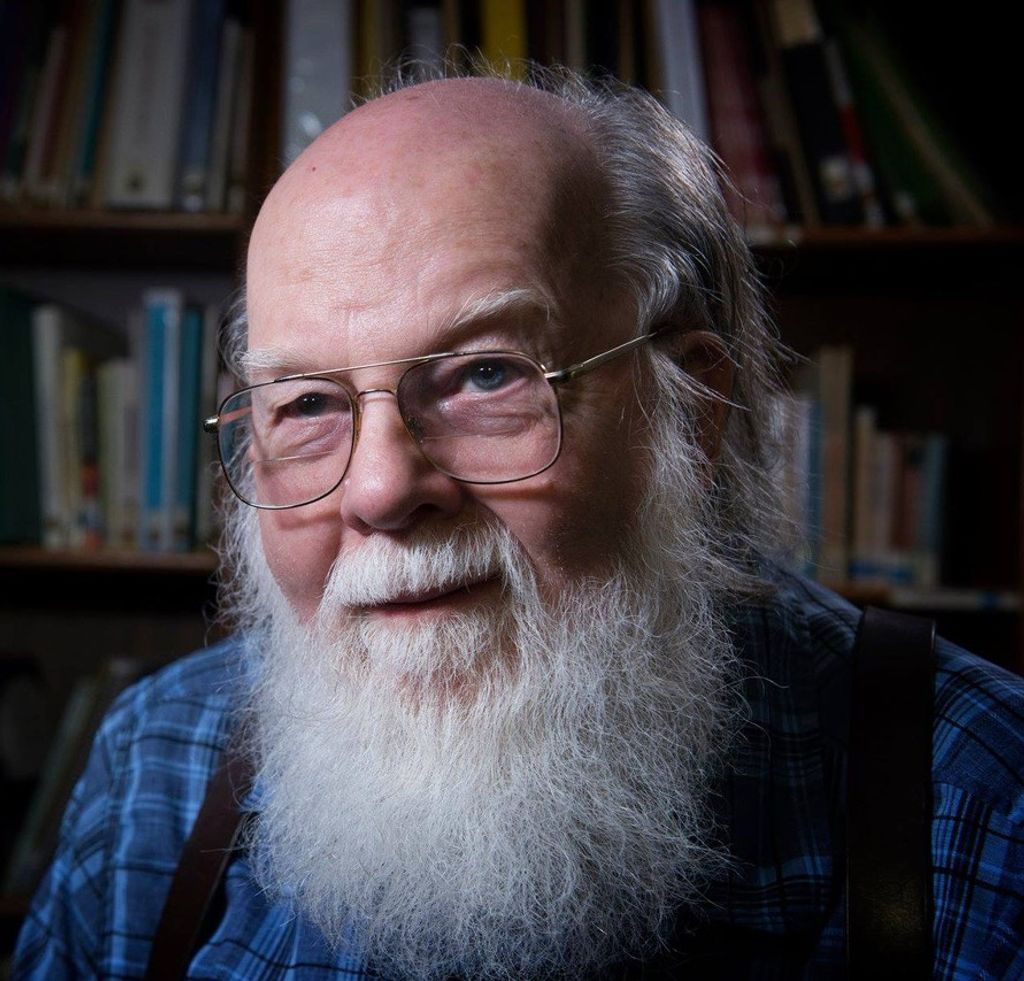 The disability rights movement lost one of its visionary leaders when John O'Brien passed away on June 27, 2025. For decades, O'Brien and his wife Connie Lyle O'Brien championed a simple belief: that every person deserves to be fully included in community life. His groundbreaking work changed how we think about disability. It moved goals beyond basic accommodations to pursue full community belonging. Belonging in schools, neighborhoods, and everyday conversations. He emphasized the importance of listening to people with disabilities and their families and learning from their experiences.
The disability rights movement lost one of its visionary leaders when John O'Brien passed away on June 27, 2025. For decades, O'Brien and his wife Connie Lyle O'Brien championed a simple belief: that every person deserves to be fully included in community life. His groundbreaking work changed how we think about disability. It moved goals beyond basic accommodations to pursue full community belonging. Belonging in schools, neighborhoods, and everyday conversations. He emphasized the importance of listening to people with disabilities and their families and learning from their experiences.
This trailblazing way of thinking became the foundation for the Georgia Council on Developmental Disabilities’ Real Communities projects. These projects were intentionally inclusive and welcomed the gifts and talents of community members with disabilities. These person-centered methods continue to guide disability advocates worldwide.
His legacy lives in countless communities where inclusion is not an ideal, it's a reality. Members of the disability community shared their memories of O’Brien and what he meant to them.
Jack Pierpoint, Co-Director of Inclusion Press
John was an amazing listener who crafted those stories into workshops, exercises, articles, and books. His wisdom shepherded thousands of us to join the battles for de-institutionalization. Our world is in a challenging phase, but because of the life of John O’Brien, the world is a better place for all of us.
Lynda Kahn, Co- Director of Inclusion Press
John was generously curious to learn more about what you cared about and why. I never stopped taking notes when together with John. His questions were fateful and insightful.
I am still learning about what love and tenderness and care for one another looks like from Connie and John. John is still teaching me quiet, steadfast ways of friendship.
This thought is guiding me now; we need to up our game in John’s name.
Beth Mount, Social Change Artist
John developed and shaped many of the person-centered planning methods used internationally. These methods continue to influence thousands of folks; families, facilitators, and human service workers, who keep asking “What more is possible?” against all odds. John prepared us to have the courage to challenge and overcome practices, structures, and values that lead to segregation, devaluation, and underestimation in contrast to people living with true purpose and belonging in real communities.
Brittany Curry, Graphic Facilitator/Statewide Citizen Advocacy Advisory Committee
Beyond all I’ve learned from John intellectually, the most important lessons have come from witnessing how he moved through the world. He listened deeply—through all the noise—and got people thinking about the right QUESTIONS to ask, rather than the ANSWERS to cling to. He modeled curiosity when most in the world seek certainty. He taught how to thoughtfully and respectfully challenge limiting beliefs. Time spent with John always left me seeing things a little more clearly.
Jessica Mathis, Community Builder, Voting Access Champion
The first time I met John O’Brien was at the Georgia Winter Institute. John and Connie O’Brien laid the foundation and the groundwork for helping me and so many in the disability community become more empowered. They taught us about mutual respect and what it meant to include people with disabilities in community decision making. I still carry a great deal of the things that he taught. We will miss you.
Learn more about the life, work and impact of John O’Brien on the Inclusion Press website.
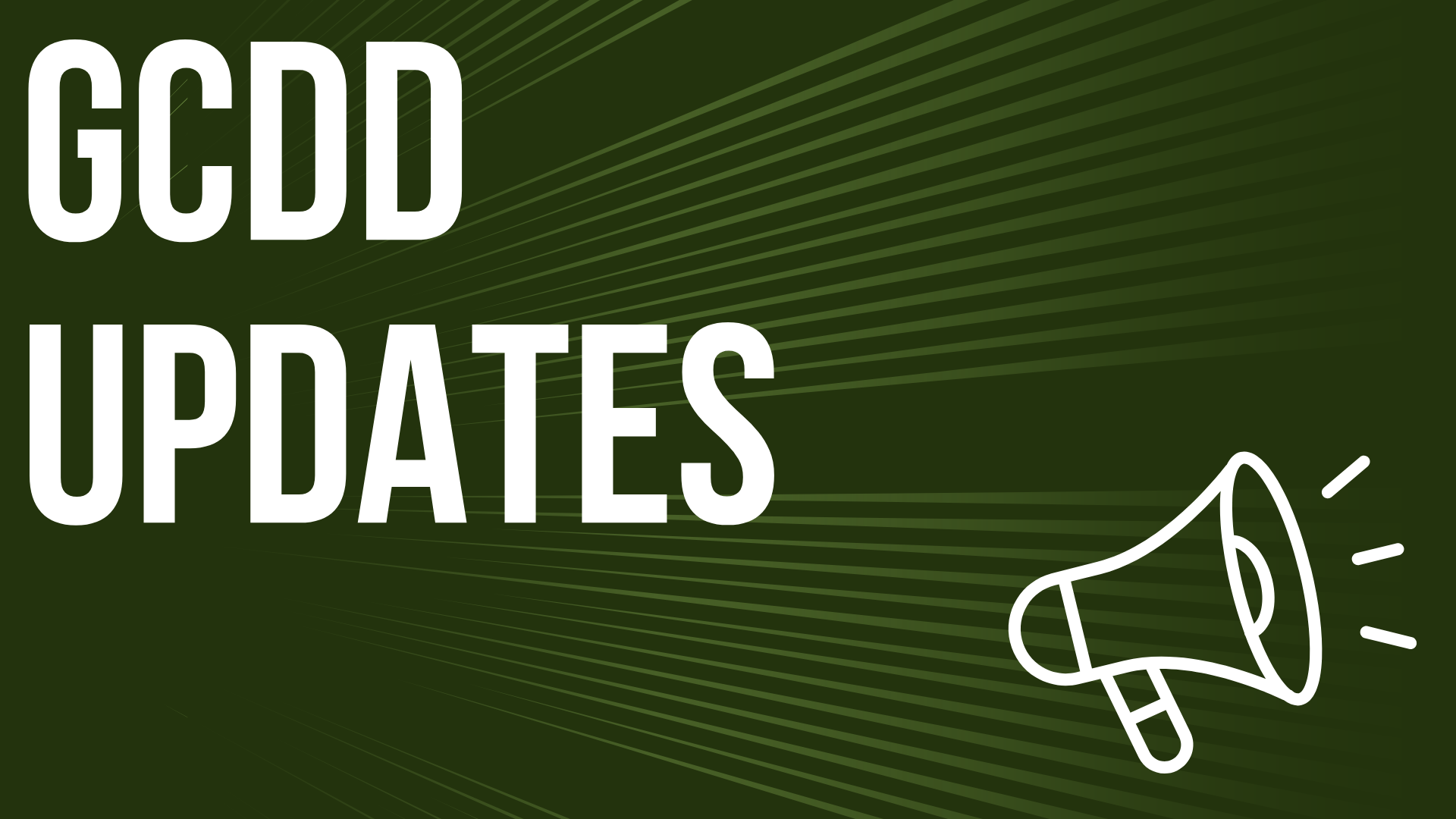
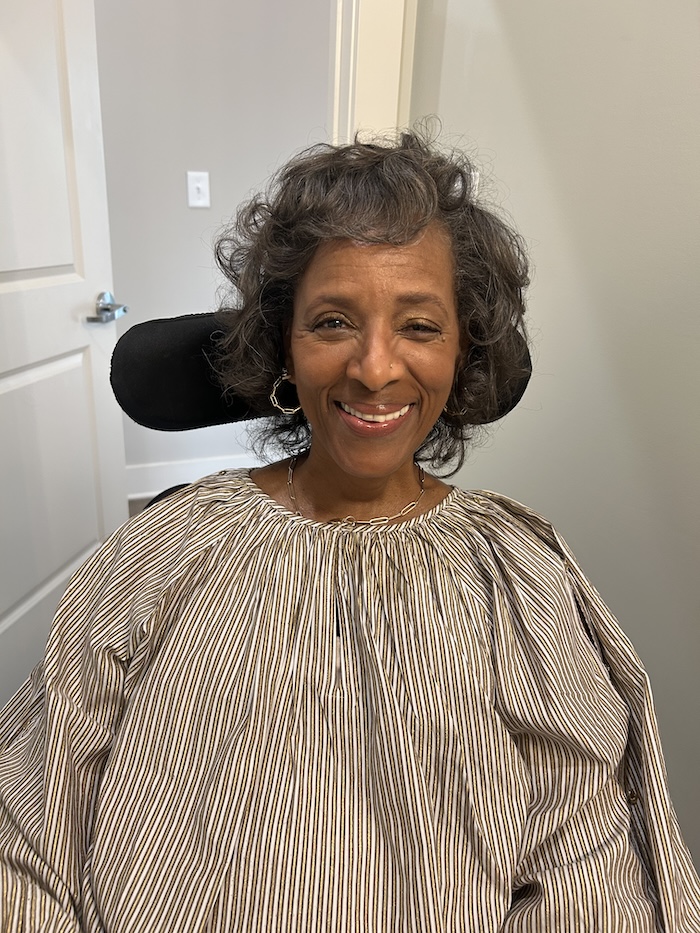 Simmons grew up in Englewood, California, and was diagnosed at 13 years old with Muscular Dystrophy. She was passionate about sports and earned a degree in Sports Communication from California State University. Her goal was to become a sports broadcaster.
Simmons grew up in Englewood, California, and was diagnosed at 13 years old with Muscular Dystrophy. She was passionate about sports and earned a degree in Sports Communication from California State University. Her goal was to become a sports broadcaster.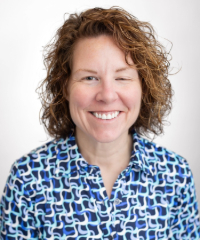 Brook Kubik, a council member for the Georgia Council on Developmental Disabilities, went to the 2025 Disability Seminar in Washington, D.C. She returned to Georgia with more than policy updates – she came back with a new understanding of the strength of relationships, the importance of advocating with heart and facts, and the power of telling stories that help people connect.
Brook Kubik, a council member for the Georgia Council on Developmental Disabilities, went to the 2025 Disability Seminar in Washington, D.C. She returned to Georgia with more than policy updates – she came back with a new understanding of the strength of relationships, the importance of advocating with heart and facts, and the power of telling stories that help people connect.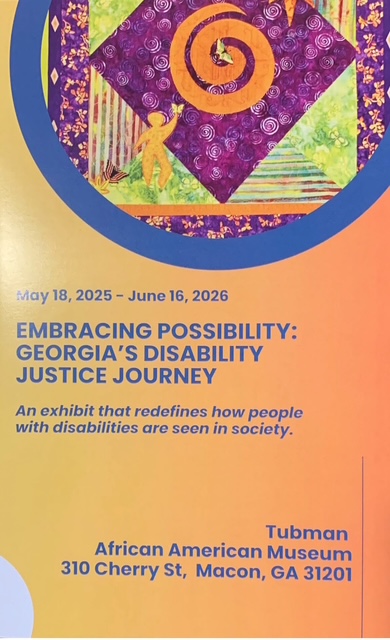
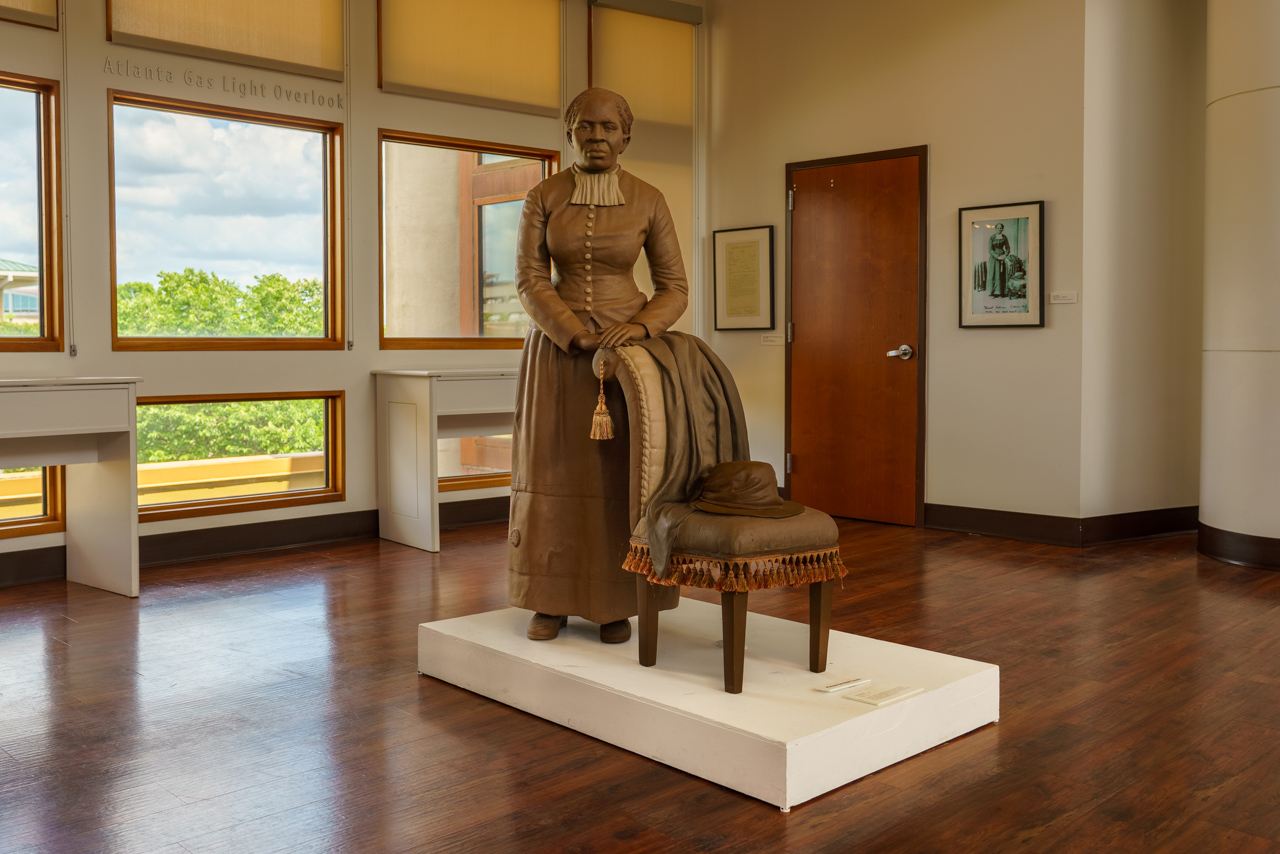 The event, which was the official launch of this year-long exhibit, featured the Gifted Harmony Choir and performances by Dean Brown. Their talents created an atmosphere of joy and celebration that perfectly captured the spirit of the disability rights movement in Georgia.
The event, which was the official launch of this year-long exhibit, featured the Gifted Harmony Choir and performances by Dean Brown. Their talents created an atmosphere of joy and celebration that perfectly captured the spirit of the disability rights movement in Georgia.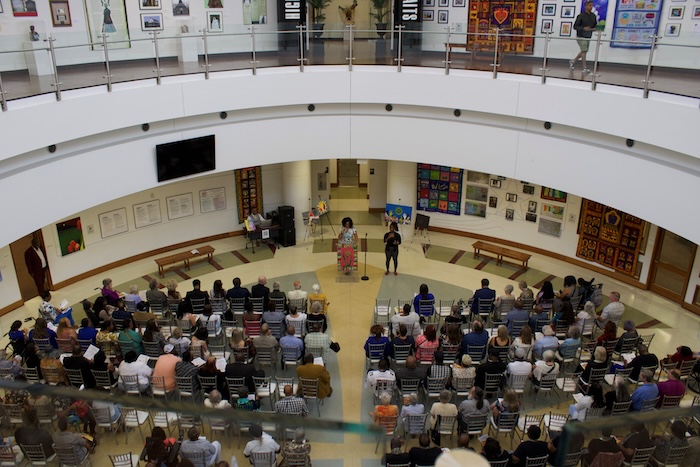
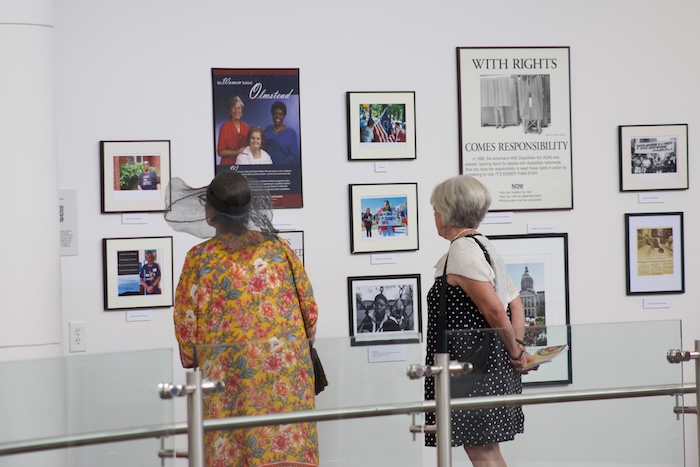 Attendees felt the opening celebration was a success, showing the need in Georgia's communities for real stories of disability experiences and history. The goal of the exhibit is to create a lasting impact that extends far beyond the walls of the Tubman Museum.
Attendees felt the opening celebration was a success, showing the need in Georgia's communities for real stories of disability experiences and history. The goal of the exhibit is to create a lasting impact that extends far beyond the walls of the Tubman Museum. The Arc Macon
The Arc Macon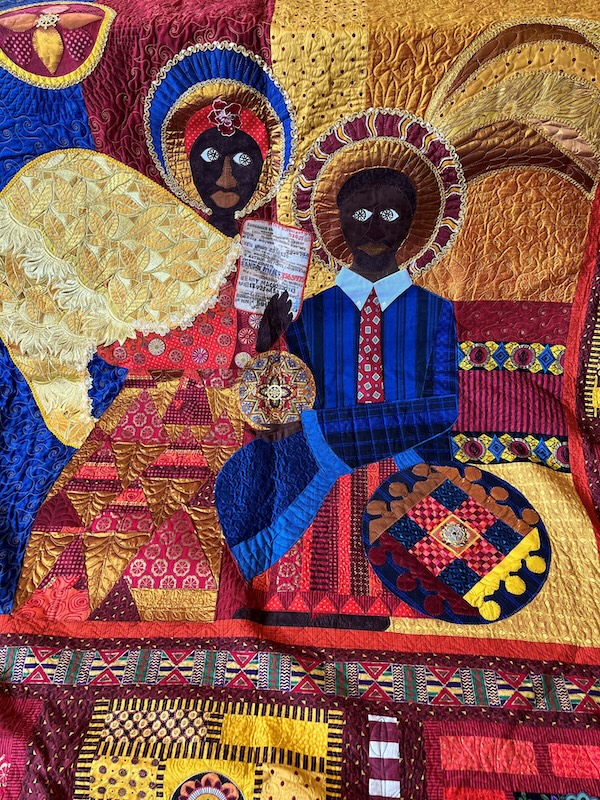

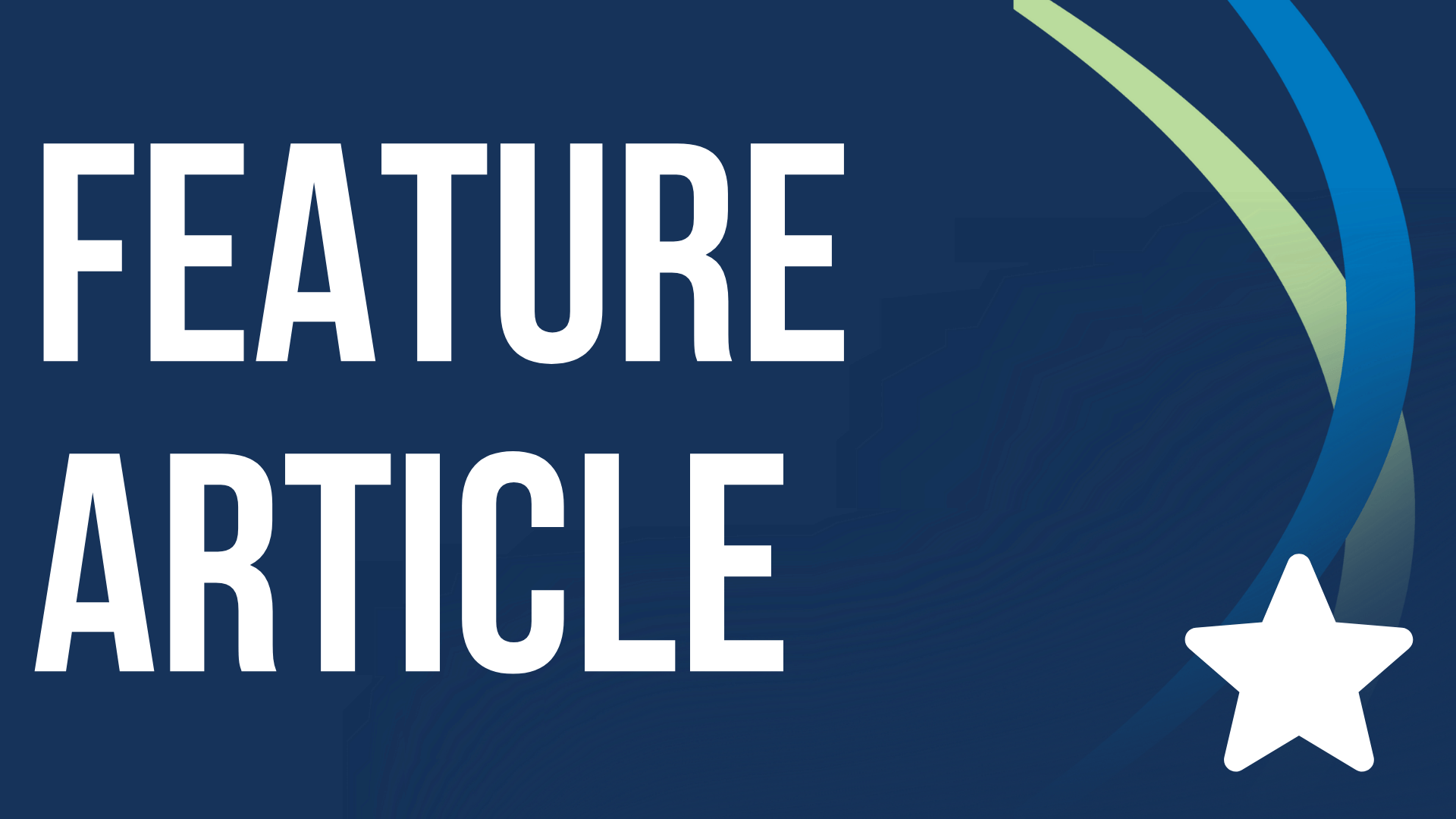
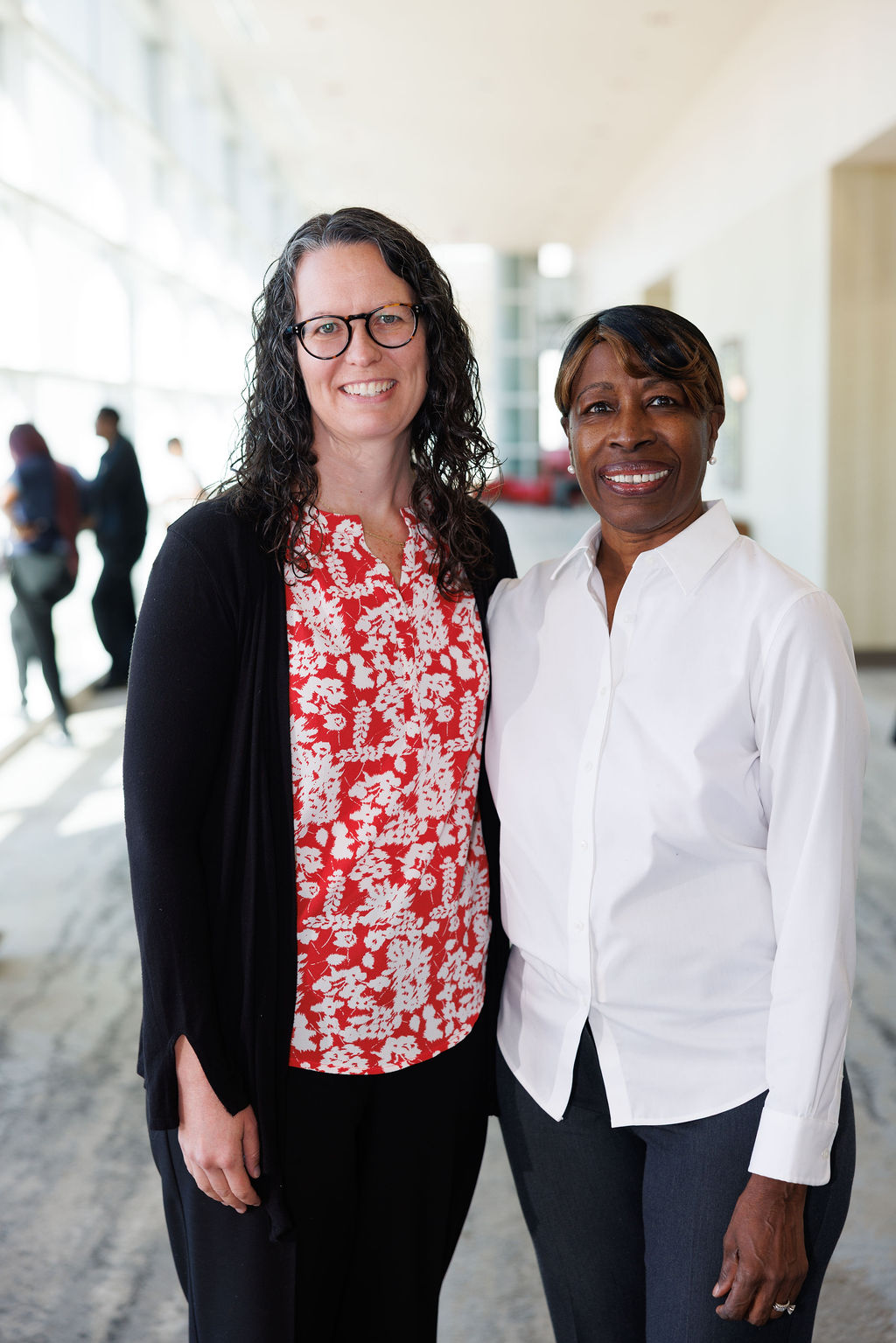
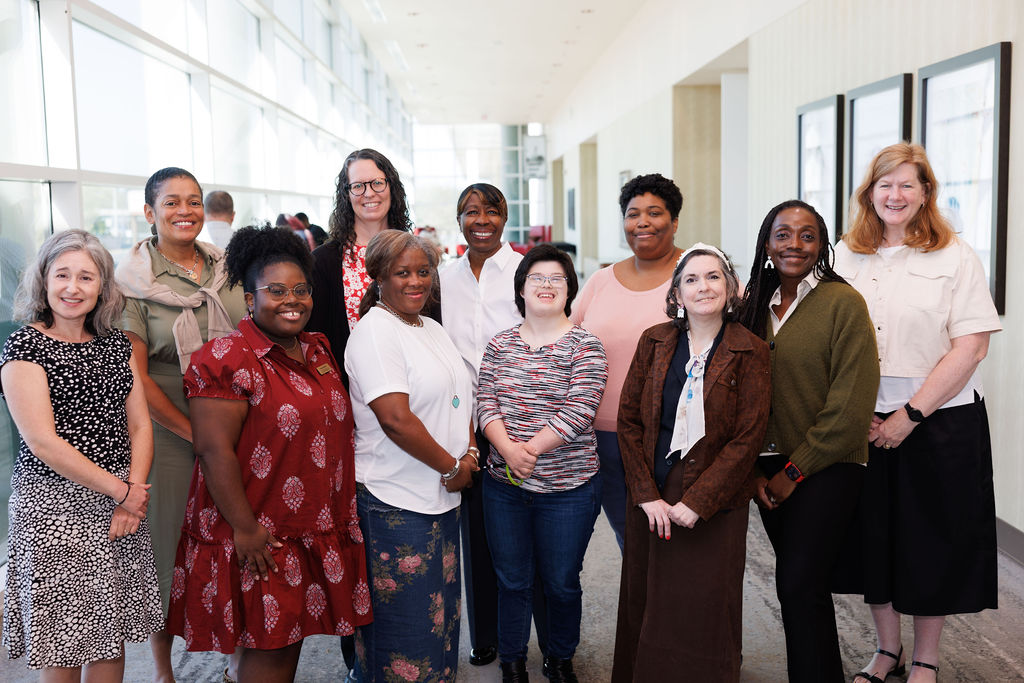 ConnectAbility's programming has evolved to meet diverse needs. Race for a Reason provides an inclusive running program with adaptive race chairs. The Thousand Words Photography Project gives a photo voice to those who may find communication challenging. The Community Connections Leadership Team's "intern" program offers people with I/DD opportunities to develop professional skills and work experience.
ConnectAbility's programming has evolved to meet diverse needs. Race for a Reason provides an inclusive running program with adaptive race chairs. The Thousand Words Photography Project gives a photo voice to those who may find communication challenging. The Community Connections Leadership Team's "intern" program offers people with I/DD opportunities to develop professional skills and work experience.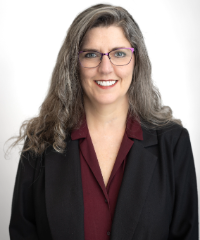 With more than 25 years of experience in disability rights and human services, Rena brings deep expertise in policy advocacy, community engagement, and organizational leadership. She holds an undergraduate degree in Psychology and a master’s degree in Applied Behavior Analysis. She is known for building strong partnerships with self-advocates, families, providers, and policymakers.
With more than 25 years of experience in disability rights and human services, Rena brings deep expertise in policy advocacy, community engagement, and organizational leadership. She holds an undergraduate degree in Psychology and a master’s degree in Applied Behavior Analysis. She is known for building strong partnerships with self-advocates, families, providers, and policymakers.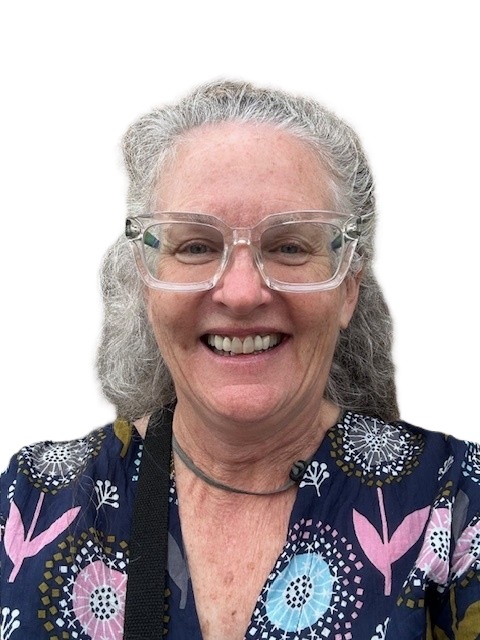 Cathy grew up in Peoria, IL, and earned a BA in English from Marquette University in Milwaukee, WI; a MA in International Relations from Boston University; a MTS from Spring Hill College in Mobile, AL; and an interdisciplinary PhD from the University of New Hampshire in Durham, NH. She had the unique opportunity to live and work in the community at Schumacher College (Devon, UK) while working on her dissertation. She was a Visiting Scholar at Linacre College, Oxford University, exploring cultural anthropology and ethnography.
Cathy grew up in Peoria, IL, and earned a BA in English from Marquette University in Milwaukee, WI; a MA in International Relations from Boston University; a MTS from Spring Hill College in Mobile, AL; and an interdisciplinary PhD from the University of New Hampshire in Durham, NH. She had the unique opportunity to live and work in the community at Schumacher College (Devon, UK) while working on her dissertation. She was a Visiting Scholar at Linacre College, Oxford University, exploring cultural anthropology and ethnography.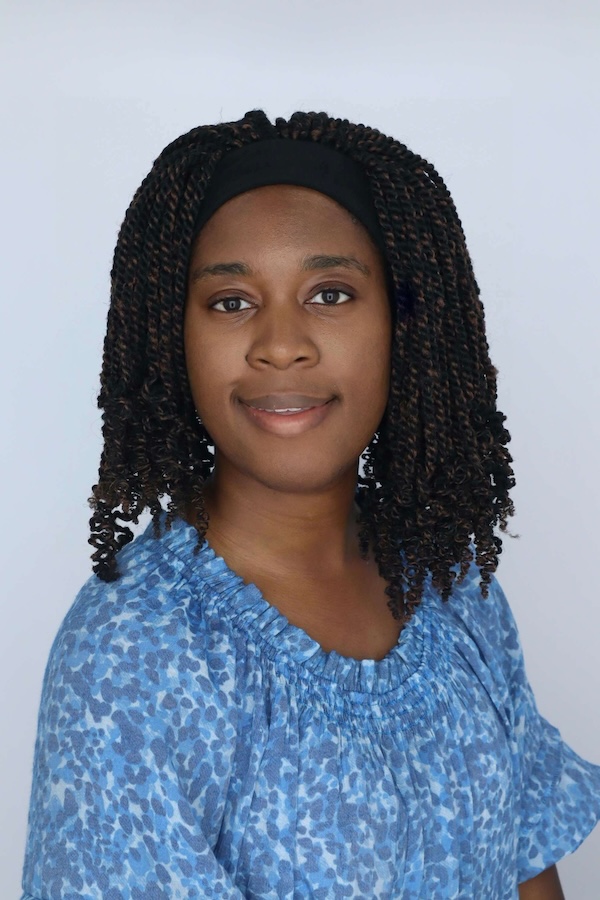 Ariel Edwards (LMSW), is the Georgia Council on Developmental Disabilities’ (GCDD) new Program and Policy Specialist whose role focuses on policy research, project management, and initiatives that support Georgians with developmental disabilities. Ariel oversees GCDD’s inclusive post-secondary education (IPSE) programs and the Georgia Inclusive Post-Secondary Education Consortium (GAIPSEC). In this role, Ariel will also analyze policies to inform recommendations for systems change that includes working with GCDD’s public policy team and oversee the implementation of Georgia as a Model Employer (GAME) in partnership with the State ADA Coordinator’s Office.
Ariel Edwards (LMSW), is the Georgia Council on Developmental Disabilities’ (GCDD) new Program and Policy Specialist whose role focuses on policy research, project management, and initiatives that support Georgians with developmental disabilities. Ariel oversees GCDD’s inclusive post-secondary education (IPSE) programs and the Georgia Inclusive Post-Secondary Education Consortium (GAIPSEC). In this role, Ariel will also analyze policies to inform recommendations for systems change that includes working with GCDD’s public policy team and oversee the implementation of Georgia as a Model Employer (GAME) in partnership with the State ADA Coordinator’s Office.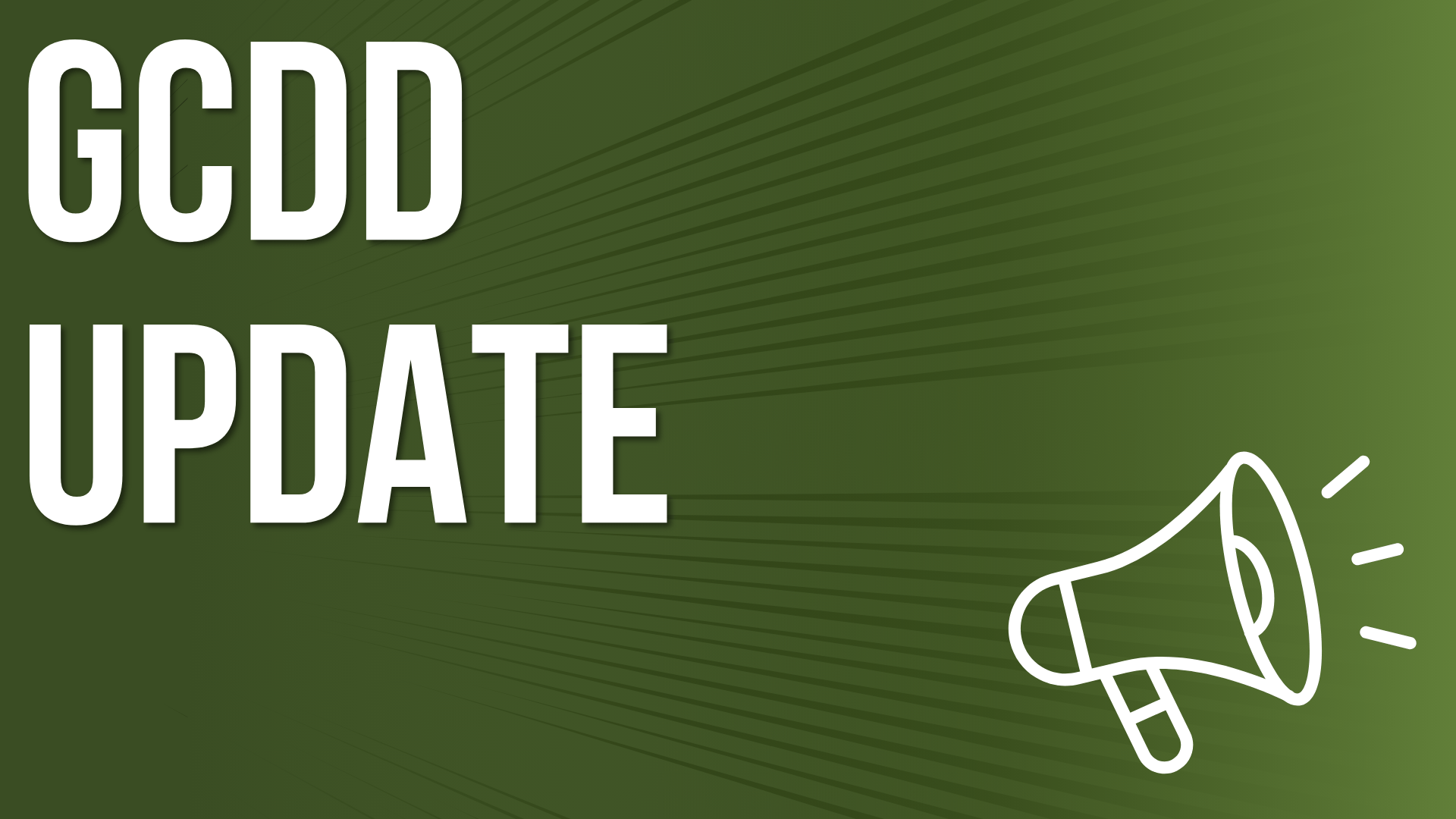
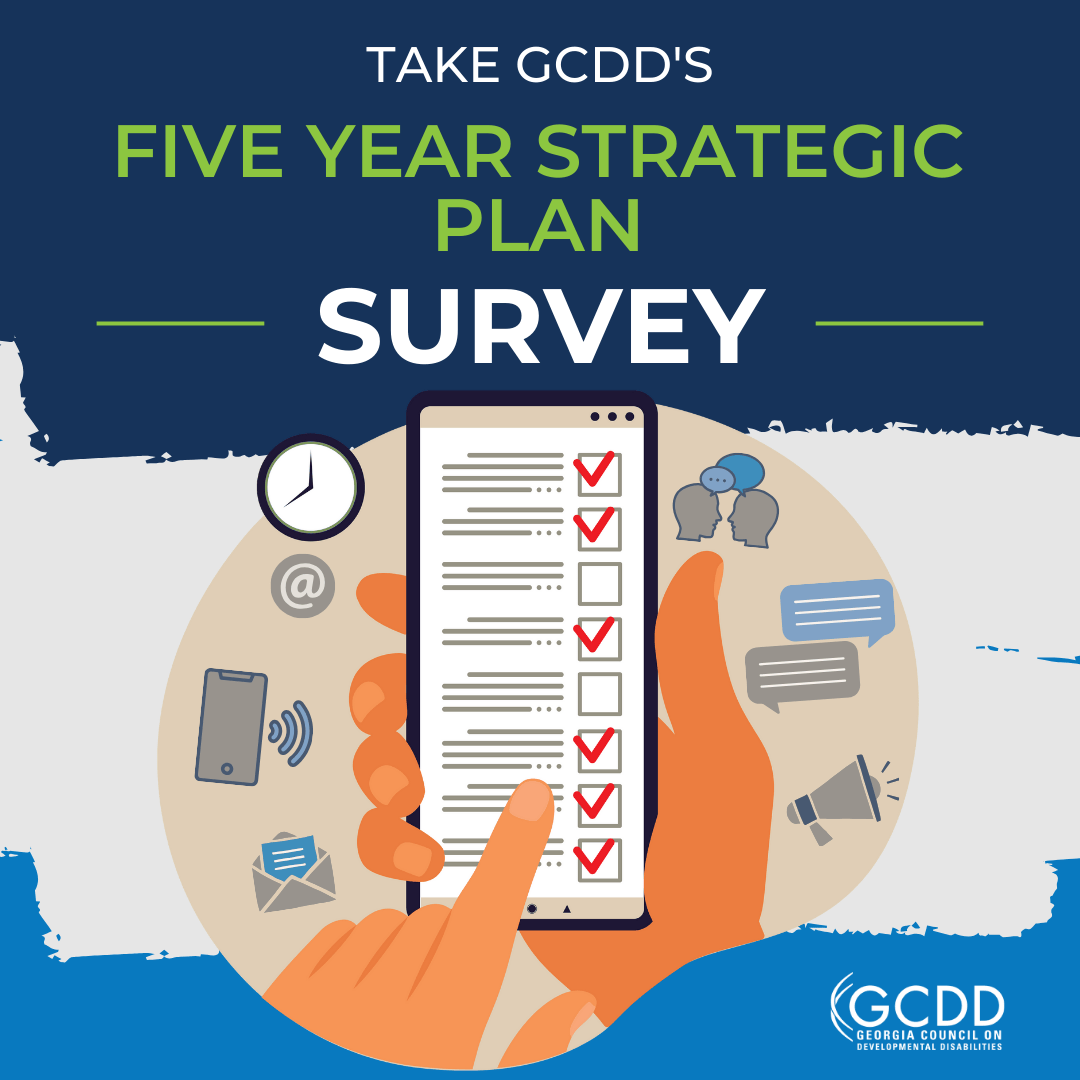 Currently, GCDD is gathering information through focus groups involving families, self-advocates, and providers. These focus groups are crucial for identifying where resources and programming are needed most.
Currently, GCDD is gathering information through focus groups involving families, self-advocates, and providers. These focus groups are crucial for identifying where resources and programming are needed most.  The Georgia Council on Developmental Disabilities (GCDD) continues to seek public input for its 2027-2031 Five-Year Strategic Plan project. Information gathered from stakeholders across the state will help GCDD form a strategic plan to create systems change for individuals with intellectual and developmental disabilities (I/DD) and their families. The final plan will guide projects that help the Council influence public policy at both state and federal levels, support capacity building through technical assistance and grants, facilitate discussions on creating change, and promote public awareness of the needs of the disability community.
The Georgia Council on Developmental Disabilities (GCDD) continues to seek public input for its 2027-2031 Five-Year Strategic Plan project. Information gathered from stakeholders across the state will help GCDD form a strategic plan to create systems change for individuals with intellectual and developmental disabilities (I/DD) and their families. The final plan will guide projects that help the Council influence public policy at both state and federal levels, support capacity building through technical assistance and grants, facilitate discussions on creating change, and promote public awareness of the needs of the disability community.